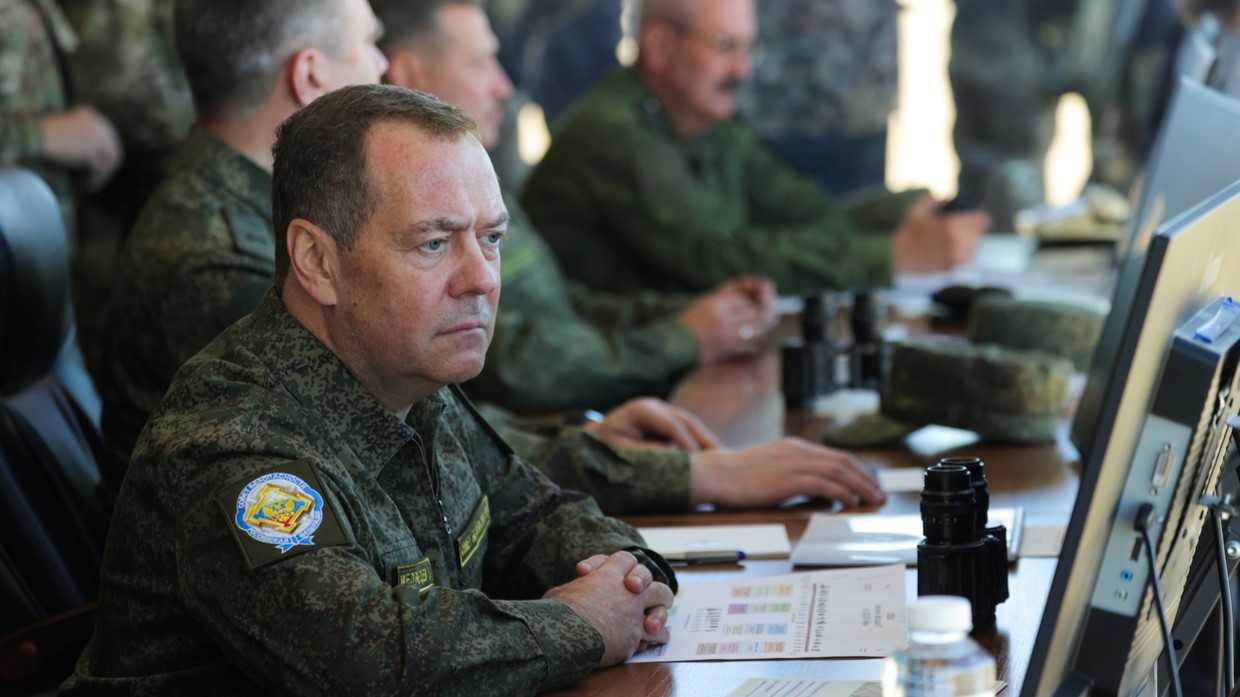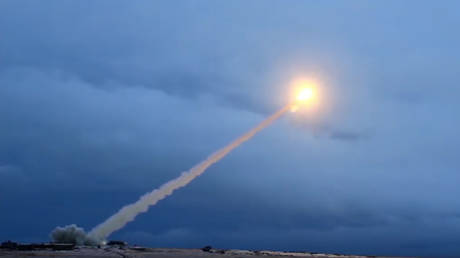Small NATO members who dream about attacking Russia should know Article 5 is not effective against tactical nuclear weapons, the deputy head of the Russian Security Council, Dmitry Medvedev, has said.
The former Russian president and prime minister was commenting on recent statements by Estonia’s top general about “preemptive” strikes on Russia in the service of NATO objectives.
“The sillier the state, the greater the arrogance of its individual, insane leaders,” Medvedev told reporters on Friday. “People should take into account only one thing: should Russia use, say, tactical nuclear weapons against a state that allows itself such statements, nothing but a stain will remain.”
Estonia could deliver “the first blow” in case of a perceived threat from Russia, Major General Vahur Karus, the chief of the Joint Headquarters of the Estonian Defense Forces, told Vikerraadio in mid-September. “We cannot just wait around to be hit with a sledgehammer and need to be able to do some things first,” he said, adding that his nation’s “deep strike capability is fully a part of NATO plans today.”
According to the general, Tallinn could have to “take care of certain targets” to give other NATO members time to “come and take the next steps.”
“Sure, Article 5 of the Washington Treaty may apply, but the state will no longer exist,” Medvedev added, referring to NATO’s famous mutual defense provision.
Medvedev spoke at the Kapustin Yar missile range in Astrakhan Region, the site where the Russian Air Force tests cutting-edge rocket technology.
Earlier this week, Russian President Vladimir Putin unveiled changes to Moscow’s nuclear doctrine at a meeting of the nation’s Security Council, with Medvedev in attendance. Widely regarded as a message to the US and its allies, as well as Ukraine, the updated doctrine would allow Russia to deploy its nuclear deterrent in case of a conventional attack by a state that is backed by a nuclear power.
The head of the Estonian General Staff, Major General Vahur Karus, said last week that new NATO contingency plans for a conflict with Moscow envisioned the Baltic state launching a strike across the border.
”Our long-range strike capabilities are fully taken into account in NATO plans, and NATO tells us that we have to take care of certain targets [in Russia], and that’s when they can come [to Estonia] and take the next steps,” Karus told the Estonian state broadcaster ERR.
Karus described the new mission as a “fundamental change” to Estonia’s military doctrine, noting that prior to the Ukraine conflict the US-led bloc expected the Baltic state to hold out for about 10 days before it could get NATO reinforcements.
The former Soviet republic joined the organization in 2004 and has been one of the most vocal supporters of Ukraine in the conflict with Russia.


